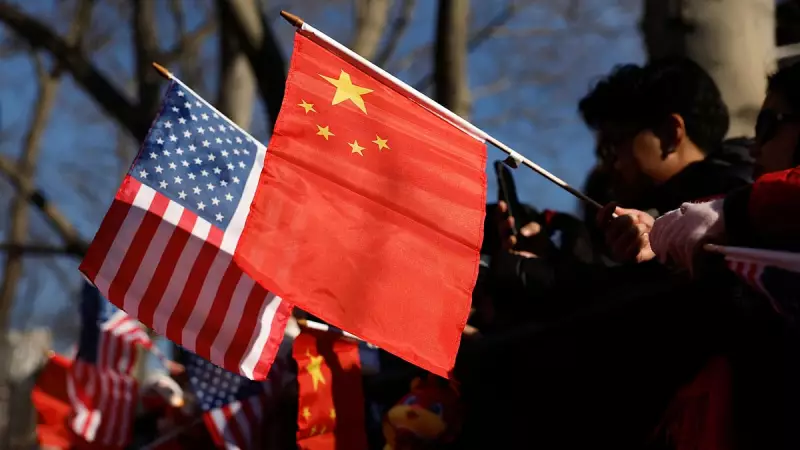
In a significant escalation of the ongoing technological confrontation, the United States is reportedly considering sweeping new restrictions that would block China's access to advanced artificial intelligence chips manufactured anywhere in the world using American software and technology.
The New Frontier in Tech Restrictions
According to sources familiar with the matter, the Biden administration is exploring measures that would extend beyond current export controls. The proposed regulations would target semiconductors produced in foreign facilities that utilize US software in their manufacturing processes, effectively closing a potential loophole in existing restrictions.
This strategic move represents a substantial broadening of Washington's campaign to limit Beijing's technological advancement, particularly in the critical field of artificial intelligence. The restrictions would specifically focus on cutting-edge AI chips that power everything from military applications to commercial AI systems.
Global Supply Chain Implications
The potential measures could have far-reaching consequences for global semiconductor supply chains. Many chip manufacturers outside the United States, including facilities in Taiwan, South Korea, and Europe, rely on American-designed software for their production processes.
Industry experts warn that these restrictions could create significant disruptions in the global technology ecosystem. Companies worldwide that depend on advanced semiconductors for their products might need to reconsider their supply chain strategies and manufacturing partnerships.
China's Technological Ambitions at Stake
For China, these potential restrictions represent another major obstacle in its quest for technological self-sufficiency. The country has been aggressively investing in domestic chip production capabilities, but still relies heavily on foreign technology for the most advanced semiconductors.
The proposed controls would specifically target:
- AI chips used in military applications and surveillance systems
- High-performance computing components critical for AI research
- Advanced semiconductors manufactured using US software tools
- Chips produced by foreign foundries with American technology licensing
Ongoing Technological Cold War
This development marks the latest chapter in the escalating technological competition between the world's two largest economies. The United States has progressively tightened export controls on advanced technology to China, citing national security concerns and the potential military applications of these technologies.
Industry analysts suggest that these measures could accelerate China's efforts to develop completely independent semiconductor manufacturing capabilities, though most experts agree this would take years to achieve at the most advanced levels.
The timing of these considerations coincides with increasing tensions in US-China relations and growing concerns about China's technological advancement in artificial intelligence and related fields.






